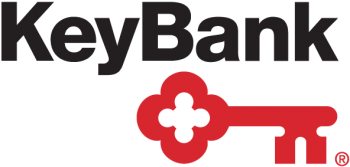News
November 11, 2015Field Goods Proves to be Secret Weapon to Getting Employees to Eat Their Vegetables
Field Goods, announced today that the company is rolling out its wellness program BeetCamp™ throughout its distribution area in Eastern New York and Fairfield County Connecticut. is helping businesses to get employees to “eat their vegetables” with the launch of its BeetCamp™ program,, a 10-week program that helps employees eat healthier and creates a culture of wellness and environmental responsibility, is showing results that businesses like: employees eat a healthier diet. The program was first introduced into the organizations such as Beech-Nut Nutrition, Fujifilm and Blue Sky Studios.
The BeetCamp service is a 10-week program in which employers contribute to the cost of employees’ fruit and vegetable bag order. In return, employees agree to receive at least 8 out 10 weekly deliveries.
“Poor diet is the root cause for a large number of chronic and costly diseases, but getting people to change their diet is extremely difficult,” said Donna Williams, founder and president of Field Goods. “BeetCamp offers employers a powerful way to improve their employees’ diets by removing the barriers to a healthy diet — cost, convenience, education, and availability — and developing healthy eating habits during a 10-week period.”
“We brought the Field Goods Office Delivery Service into Beech-Nut in March 2014,” said Amy Perrault, vice president of human resources at Beech-Nut. “It was very popular with a small group of employees. In an effort to broaden participation we collaborated with Field Goods to create the first BeetCamp. The 10 week program was so well received by our employees that we decided to extend the program on an ongoing basis and even added on-site Dietitian counseling.,. Our corporate mission is to provide our customers (babies) with honest, real food and working with Field Goods helps us ensure that mission is carried to our employees.”
The BeetCamp service is a 10-week program in which employers contribute to the cost of employees’ fruit and vegetable bag order. In return, employees agree to receive at least 8 out 10 weekly deliveries. In addition to working with Beech-Nut to develop BeetCamp, FujiFilm, Blue Sky Animation Studios and a host of smaller companies have embraced the program.
“We have tried dozens of wellness programs and none has come close to the popularity and impact of Field Goods,” said Carolyn Gordon, director of benefits at Fujifilm Holdings America Corporation. “We had close to 200 people who participated in BeetCamp. An internal survey showed that 79% said BeetCamp helped to improved their diet and 100% rated BeetCamp as a valuable employee benefit.”
Field Goods has corporate America jumping on the veggie train and helping to pay for their employees’ produce.BeetCamp is a natural extension of Field Goods’ base business. Over the past four years, Field Goods has built its rapidly growing Office Delivery Service by delivering a very simple product: Employees subscribe to a weekly delivery of a bag of local produce that is selected for them and delivered to their workplace at great value. The service also includes in-depth educational information on the produce and how to prepare it.
Research attested to the healthy results of the service. Field Goods and the Nutrition Science Department at The Sage Colleges released a study in 2014 on the effects of the Field Goods subscription on the health, well-being , and finances of subscribers. The results showed a direct correlation between a Field Goods subscription and healthier eating habitsdiets, increased satisfaction with eating habits , and saving money.
Field Goods has supported 70+ family farms and poured almost 3 million dollars into the upstate NY agricultural economy. On the way it’s introduced customers to 150+ produce items and demystified caraflex cabbage, celeriac, kale sprouts, kohlrabi, cardoons, fiddleheads, and dozens of other products they would never buy at a retail store.
“There is significant discussion over the effectiveness of workplace wellness programs,” said Williams. “We hope to establish that addressing diet as the root cause of so much illness is a smart and simple way to battle healthcare costs.”



























